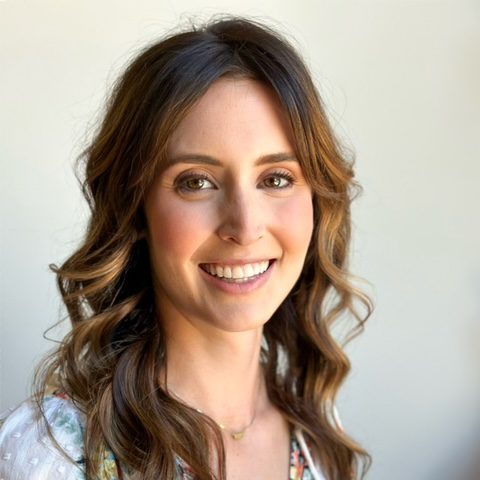8 FAQs about Vaccinations in Early Care & Education
As a child care provider, you want to keep your business running smoothly and safely. Encouraging parents to keep their child’s vaccinations up to date is an important way to ensure that the children in your program remain healthy and protected against serious diseases.
How do vaccines work?
Children are exposed to thousands of germs every day in their environments. Vaccines help to strengthen a child’s immune system by exposing them to a small amount of antigen (parts of germs) to help the child’s body recognize certain diseases and learn how to fight them. This allows the child to develop immunity before they are exposed to potentially fatal or life-threatening diseases.
Should all children be vaccinated?
Encouraging all children to complete their routine childhood immunizations helps protect those more vulnerable who cannot be immunized due to medical conditions. This is called herd immunity, which helps prevent the spread of contagious and preventable diseases throughout groups of people.
What childhood immunizations are required in Kansas?
Kansas Administrative Regulations (K.A.R. 28-1-20) defines the list of immunizations required for children attending child care and early childhood programs that are licensed by the Kansas Department of Health and Environment (KDHE).
These requirements follow the Advisory Committee on Immunization Practices (ACIP) and Centers for Disease Control and Prevention (CDC) guidelines.
Should children get the COVID-19 vaccine?
Both the CDC and the American Academy of Pediatrics (AAP) recommend that all eligible infants and children ages 6 months and older, without contraindications, get vaccinated against COVID-19.
Being fully vaccinated allows individuals to avoid isolation when exposed to someone who has tested positive for COVID-19, if they are able to mask effectively, and it helps to prevent severe illness in those who test positive.
Among children, vaccination against COVID creates a broader immune response compared to the natural immunity gained from previous infection. This fact highlights the importance of vaccinating children who have previously had COVID in order to prevent both future illness and severe disease.
Children can receive their COVID-19 vaccination at the same time as their other well-child vaccinations. Parents should talk to their pediatrician’s office for more information about getting vaccinated.
Child care providers looking to review their Illness and Exclusion or COVID-19 policies can reach out to our Child Care Health Consultants.
Why is immunization needed in early childhood environments?
Early education, child care centers, and day care homes all have children interacting closely with one another and sharing toys, books, and other items. That means children are sharing germs.
Plus, children have a limited ability to perform proper cough/sneeze etiquette and hand hygiene. This is all compounded by the fact that children are especially vulnerable to disease.
How do I make sure the children in my program are vaccinated?
Keeping track of current childhood immunization records is the responsibility of the child care provider as part of their KDHE licensing. The Nurse Consultants in our Child Care Health Consultant Network (CCHC) can provide assistance with reading, interpreting, and tracking childhood immunization records.
Permissible alternatives to a vaccine record include religious or medical exemptions. CCHC Nurse Consultants can assist with appropriate documentation in these situations.
How do I communicate with parents and families about vaccination?
Child care providers can help parents by encouraging them to ask questions at their child’s wellness checks with their health care provider. You can also make expectations clear to parents with a well-written policy or section on immunization requirements in a parent handbook.
CCHC Nurse Consultants can help you locate the proper KDHE forms related to vaccine requirements and provide educational handouts for parents.
Where can I turn for help?
Keeping children up to date with vaccinations is mutually beneficial for both parents and child care providers. If you want to improve your documentation and tracking of immunizations, review your illness and exclusion policy, or gain the confidence to have these important conversations with parents, you can receive free, one-on-one support from CCHC’s Nurse Consultants.
To request to speak to the Nurse Consultant in your local area, reach out to Child Care Health Consultants at (785) 823-3343 or by emailing cchc@ks.childcareaware.org.
Our Child Care Health Consultants offer one-on-one coaching and planning sessions to licensed providers in Kansas — wherever and whenever you need it.
We’re here to answer your questions, respond to your needs, and help you make improvements — large and small — to support the health, safety, and well-being of the kids in your care.
-

Erica Goldsby
Child Care Nurse Consultant, Child Care Aware of Kansas
Erica has a Bachelors in Science of Nursing MWSU and a Masters of Public Health KSU. She has five years experience working at Fort Riley engaged with Child and Youth Services programs as a Public Health Nurse and Child and Youth Services Nurse. She has worked with children ages 6 weeks-18 years with a variety of special needs. She is an American Heart Association HeartSaver Instructor. Taught daycare providers at Fort Riley about Medication Administration, Communicable Diseases, Bloodborne Pathogens, and Diabetes.
-

Jessica Gable
Child Care Nurse Consultant, Child Care Aware of Kansas
Jessica works as a nurse consultant from her hometown of Derby. Before joining Child Care Aware of Kansas in 2022, she worked as a pediatric home health nurse. Jessica holds a bachelor’s degree in nursing from the University of Nebraska Medical Center. In her free time, she enjoys being creative with self-portrait photography and trying out new recipes!






